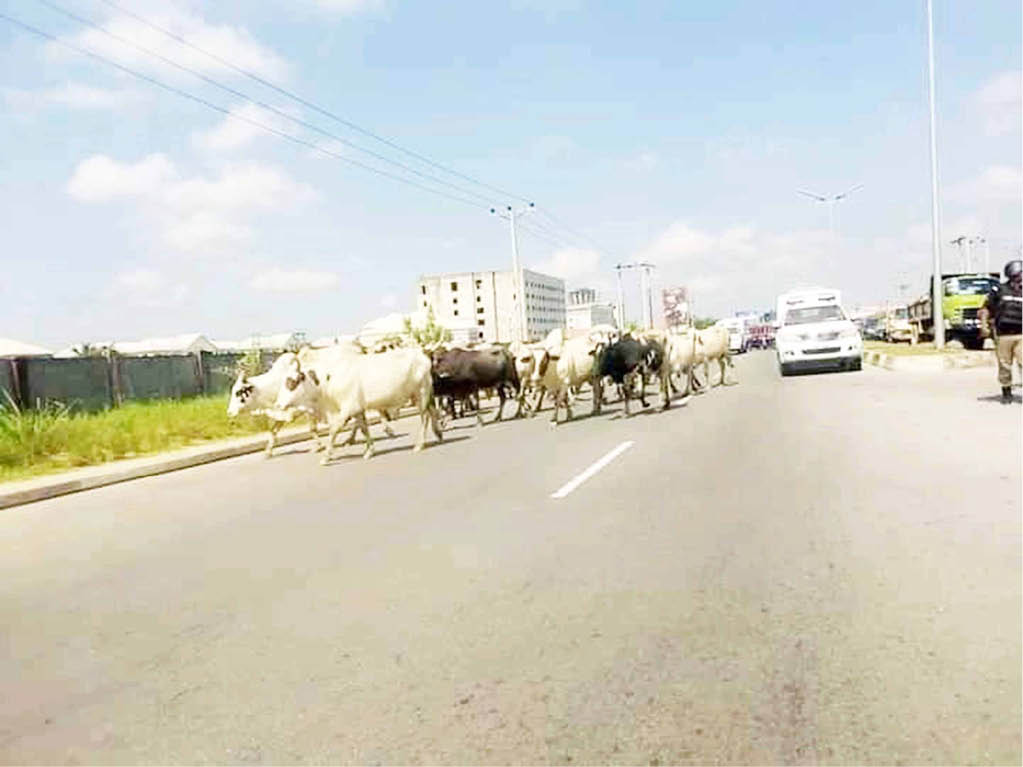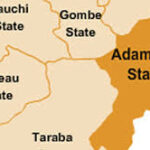Officials of Bayelsa State Livestock Management Committee on Monday impounded 34 cows for allegedly violating the state Anti-Open Grazing Law.
This was sequel to an ultimatum earlier issued by the committee following the passage and signing into law of a bill tagged “Livestock Breeding and Marketing Regulation Bill, 2021” earlier passed by the state house of assembly.
- Twitter ban: Don’t access social media via VPN, APC warns Nigerians
Reps summon Lai Mohammed over Twitter ban
The law, which was assented to by Governor Douye Diri on March 10, 2021, prohibits open grazing in the state. With the coming into effect of the law, herdsmen and cattle owners are now confined to a space at the popular Bayelsa Palm Road for the breeding of their livestock.
Daily Trust reports that the enforcement team of the Bayelsa State Livestock Management Committee led by Comrade Clever Inodu, on Monday, impounded over 30 cows that were allegedly loitering on the streets of Yenagoa, the state capital.
Speaking when the enforcement team monitored the level of compliance by the livestock owners, Comrade Clever Inodu said the committee would leave nothing to chance to ensure that the ban placed on open grazing of livestock in the state is fully enforced.
Inodu, who is also the chairman of the Central Zone of Ijaw Youth Council (IYC), warned operators of livestock business in the state to obey the law or face the consequences.
“As at 2:30 am, I received a call from the Commissioner for Agriculture and Natural Resources that some cows were still roaming the streets and immediately we had to swing into action, intercepted them and this is where we are. We want to make it very clear; we want to use this as an example to the public and cattle rearers in Bayelsa State.
“The law is very explicit; if you buy a cow for business purposes, please truck it; when you buy the cow at Bayelsa Palm, truck it to an abattoir. We have one at Swali Market. Cows should not be seen roaming the streets, and here we are. We saw over 30 cows roaming the streets which is very wrong; which is against the law of the land.
“I want to use this medium to talk to the operators in this sector. We had series of meetings with these cattle rearers in Bayelsa State. We have discussed this with them. We showed them how the law is very clear that these cows should not be seen on the streets of Bayelsa State.
“The Bayelsa State government is strongly against it and here we are today intercepting over 30 cows. I want to say it very clear that we are not going to tolerate this incident in Bayelsa State again,” he said.
He explained that phone lines have been made available, adding: “Any moment from now we are going to give them out for the public to call us when they see cows roaming the streets but please, when you see them do not go after them, just notify us.
“Call our phone numbers; we are there to act swiftly to ensure that there is peace and tranquillity in Bayelsa State. So when you see them around, do not go after them. Maintain decorum and call us. The law is there to protect you,” he said.
Our correspondent reports that in compliance with the anti-grazing law of the Bayelsa State government, cattle rearers in the state have started avoiding roads and farmlands in various parts of the state.
The state government had explained that the law is not against any tribe or religion in the country, but part of its efforts to check herders/farmers’ clashes in the state.
Following the signing of the law, the leader of the Miyetti Allah Cattle Breeders Association of Nigeria (MACBAN), Mohammed Tukur Abubakar had reportedly expressed their willingness to move their cattle to the designated place.
He urged his members to comply with the government directive to ensure a harmonious relationship between the herders and the people of the state.
Daily Trust reports that before the signing of the law, there were some pockets of infractions and conflicts between herdsmen and the indigenous farmers in the state.
For instance, in February, an 18-year-old farmer, Kohgi Samuel and his aged father from Otuoke Community in Ogbia Local Government Area Bayelsa State were said to have been wounded when a suspected herder at Osuan bush attacked and inflicted injuries on their fingers and head over allegation of a missing cow.
The incident created some tension in the community as some youths were said to have planned a retaliation but for the prompt intervention of the state government and security agencies in the state which averted the ugly situation.

Also, a few months before the law came into effect, some aggrieved women from Epie/Atissa communities in Yenagoa, the state capital, staged a peaceful protest against what they described as the excesses of herdsmen in the area.
Upon the signing of the open grazing law, the state government through the Ministry of Agriculture had given a specific time for herders to evacuate their cattle to the Bayelsa Palm area.
The governor, who had constituted a 23-member committee to implement the law, urged every person dealing with livestock to comply with the directive for harmonious coexistence.
The committee, chaired by the Commissioner for Agriculture, Mr. David Alagoa, with the Special Adviser 1 on Security, Akpoebi Agberebi, Director of Livestock in the Ministry of Agriculture, Dr. Emara Ibegu, and representatives of the police, DSS and NSCDC as members.
Other members of the committee include King Mozi Agara (Kolokuma/Opokuma Local Government Area), King Dumaro Owaba (Ogbia), Clever Inodu (Nembe), Ebiks Lokpobiri (Ekeremor) and representatives of the four other councils in the state among others.
While inaugurating the committee, the governor was quoted by his Chief Press Secretary, Mr. Daniel Alabrah, as saying that the law took effect from the day it was signed but the power to execute it was vested in the committee.
Consequently, the state implementation committee had given herders till April 10, 2021, to move their animals from farmlands and bushes across the state and relocate to the Bayelsa Palm in Yenagoa that is designated for cattle rearing or risk impoundment.
The ultimatum was given during a meeting between the livestock management committee and the leadership of MACBAN in the South-South zone in Yenagoa.
However, Secretary of the Cattle Rearers Association in Bayelsa State, Ali Maiwada, declined comment on the issue when contacted.

 Join Daily Trust WhatsApp Community For Quick Access To News and Happenings Around You.
Join Daily Trust WhatsApp Community For Quick Access To News and Happenings Around You.


